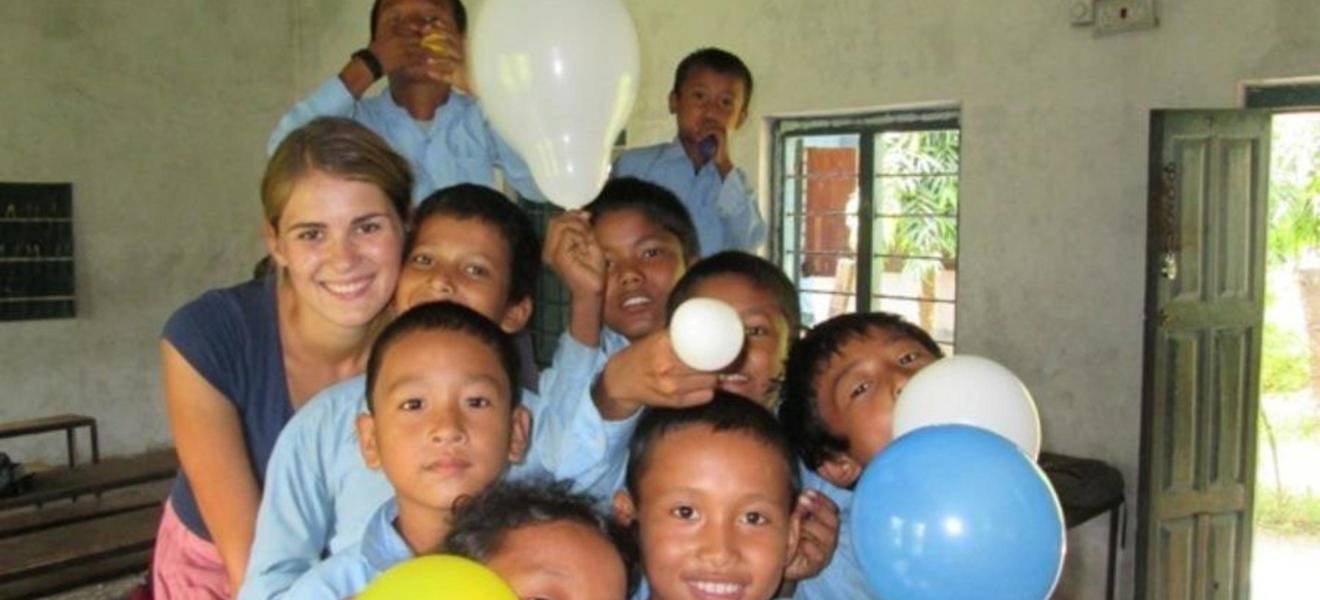01.08.2020/XNUMX/XNUMX / field reports
Teaching in Nepal Field report
All in all, Nepal was an incredible experience for me and I learned a lot about the country, the people and ultimately about myself. It is important that when you go to Nepal, you don't expect everything to be organized in the same way as it is here, you have to be flexible, open-minded and adaptable. If you are, you can take an incredible amount with you and have great experiences.
Henriette's time in Nepal
My volunteer work in a Nepalese village school
At the end of August 2014 I left for four weeks: an exciting, unforgettable and enriching time.
Outward journey and arrival in Kathmandu
Nepal is a country that is very different from ours and that demands a lot of flexibility and adaptability, but also rewards this with great experiences. It all started at the airport in Kathmandu after a long but pleasant journey via Istanbul. Since I obtained my visa in advance from the honorary consulate in Cologne, I didn't have to wait long and was able to go straight through. I wasn't picked up due to some planning difficulties beforehand, but that wasn't a problem as there are numerous taxis at the airport, which I ended up taking.
Arrived at my hotel in Thamel, the tourist center of Kathmandu, I was met by Sher, who paid for the taxi and took my suitcase. Since the room wasn't free yet, Sher and I first went to breakfast and he told me a lot about the projects in Chitwan National Park. So I was able to get a first impression and knew a little better what to expect. Due to the planning difficulties already mentioned, I didn't do the orientation program (but in the end I still had time to look at Kathmandu), but drove straight on the next day.
Accommodation and Chitwan National Park
Although the distance is not very long, the bus ride to the national park takes about six hours. But the bus was comfortable and the scenery incredibly fascinating. Arrived in the national park I was picked up and taken to my hotel. Located on the outskirts of a small village, the hotel accommodates guests who mostly stay for two to three days to go on jungle safaris and elephant rides. The hotel is owned by Sher's brother Shiri. Shiri, his wife and daughter are incredibly nice and hard-working and always had an open ear. I've always felt totally comfortable dealing with them. All other family members and hotel staff are also very nice.
Accommodation facilities
I didn't stay in the hotel but just behind it in the "volunteer room" which is a nice room with two beds, an ensuite bathroom and, when the electricity works, a fan. My view from the window went backwards to rice fields and forwards to an elephant and water buffalo stable. In addition to the animals, Shiri's family also lived in the area where the room was located. This was very nice, because I was closer to family, "real" life, the kitchen was right around the corner and I noticed a lot more, but at the same time was close enough to the hotel to see its advantages, such as the WiFi or the to be able to use the comfortable armchair in the garden. When I arrived there were already two other volunteers who explained and showed me a lot. That made a lot of things easier and I was able to get to know everything faster. The first two days I did the tourist program with jungle tours and elephant rides, which was very nice and good for getting used to.
Use at the village school
On the third day I went to my "workplace" for the next few weeks for the first time, a village school. The school has classes from one to twelve and also has something like a pre-school kindergarten, where the children are "schooled" for some time before the first class. In addition, the school is connected to a boarding school for blind students, for whom there is also a separate classroom for some lessons, where they learn Braille, etc. Although it is already a school, classes one to four are in one different buildings than the higher classes and there are also different principals and teachers. Since I studied primary school teaching in Germany, I preferred to teach the younger students. In a preliminary talk that Shiri drove me to, I spoke to the director about my abilities and we thought about which classes I could teach which subjects. School really got going for me the next day.
Everyday work at school
I was able to borrow a bicycle from the hotel, which I used to ride to school every morning at 9:30 a.m. for about half an hour over hill and dale, past many rice fields and small settlements. Since it was quite warm (about 35 degrees) and as a volunteer you shouldn't show up in shorts or tops at school, it was always quite exhausting.
But it was still going to be really exhausting: school started at 10:10 a.m. and I had the first graders as the first group. Of course, they don't speak much English yet, but they are very sweet and curious about everything. It was good that there were only about twelve children in this class. So you could work well with them and respond better to the individual children. In the first classes, it is initially only about the children learning individual words, counting, days of the week and phrases such as "My name is...", "I am...years old" etc. The children always had a lot of fun singing songs or doing "worksheets" where they could color in the pictures of the words they had learned and written.
Challenges when working with children
As a volunteer, however, you should note that the children do not have colored pencils and therefore bring them with them. In addition, there is no copier in the school, so the "worksheets" always have to be made individually in the appropriate number by hand. In addition to the first grade, I also had a third and a fourth grade in English and math. It was much more difficult to teach here because the groups are much larger (about 25 children) and the children are very loud and undisciplined . I think there are several reasons for this. The children test how far they can go. In their eyes, this is probably a long way, since I (and probably all future volunteers) have dispensed with the baton that the local teachers use to ensure calm and discipline.
Dealing with cultural differences
In addition, another problem is that it is impossible to remember all the children's names because there are simply too many names whose sound is completely unknown to us. The same applies to the language: I only learned a few words of Nepali and couldn't say anything to the children in their language. The children, on the other hand, only spoke very little English, so that it was very difficult overall to ensure peace and to explain things to them in an understandable way. In addition, they are unfamiliar with forms of work and methods such as group work. After a few initial difficulties, however, I mostly managed to do good lessons in both classes. This was best done through a mixture of "fun" (e.g. games like "Hangman", "Mr X", "Packaging" or songs like "The wheels of the bus" etc) and "serious" (e.g. making up and acting out of dialogues on a topic, filling out worksheets, creating profiles, arithmetic problems (math) etc.). In addition, I always prepared similar lessons so that the children would calm down with the routine and worked a lot with rewards (e.g. stickers, writing with felt-tip pens that I borrowed or playing games/singing songs at the end of the lesson) and symbols.
Prepare for class
However, it is important that the lessons are well prepared, otherwise they will definitely be chaotic. This certainly means another two to three hours of work "at home" per day. It's also important, even if you don't like to see yourself in this role as a volunteer, that you're relatively strict and consistent and don't slip into the role of the children's friend, but that you're there for them as a teacher. This is certainly not always easy, and in addition to discipline, there are certainly other difficulties, such as not knowing the children's level of learning and the fact that there are enormous differences in the children's abilities, even within a class. Even the math class has brought its own difficulties. You should be aware of all these difficulties if you decide to volunteer at a school in Nepal. Nevertheless, it is not impossible to do good lessons and the hard work and effort is always rewarded by the children, who are actually incredibly sweet, curious and funny. After five lessons and a 45-minute break in between, I was always exhausted on the way home at 14:40 p.m., but I was often very happy and satisfied when something went well and the children had fun.
Additional activities
Most of the time I had to relax after school because it is very exhausting to be exposed to the extreme noise all morning. I either retired or chatted with the other volunteers or the waiters from the hotel who are only between 20 and 25 years old. But there were also plenty of opportunities to do more. Behind the hotel is a children's home where about twelve children live. The children and the supervisors were always very happy to have visitors and the children liked to play games such as catch etc. You could also help in the kitchen, which cooked for the family and the hotel staff, by taking on simple tasks such as peeling potatoes. The waiters in the restaurant were also happy when they were helped with small but annoying things like napkin folds. But all this was not a must and there was definitely enough time to relax or to go on excursions to the nearby village. It was nice that there were almost always other volunteers with whom you could exchange experiences and do something.
Daily routine on site
Except for a few days when there were festivals (there are a lot of festivals in Nepal, it is best to inform yourself about the dates beforehand, otherwise there may be considerable cancellations of classes and accordingly little work), so I had a relatively regular daily routine, which started at 6 a.m. with lesson preparation, then continued with school from 9:30 a.m. to 15 p.m. (including travel time) and always ended at 22 p.m. After 21/22 p.m. there is really nothing going on. However, I found this to be very relaxing as the people there live much more with the rhythm of the sun than I am used to.
Nepalese cuisine
The food is certainly interesting for those who are considering going to Nepal. Actually, there is rice in the morning, at noon and in the evening. Since I personally get sick from rice in the morning, I always had breakfast in the hotel, which wasn't a problem. There was toast, egg and tea. I was still at school at noon. There I either ate a small snack with the other teachers or nothing. In the evening there is always rice, both in the hotel restaurant and in the kitchen at the back. I always liked it very much and, in addition to the lentil sauce, there was always another side dish, such as potatoes or various vegetables. So I didn't really feel like I wasn't eating enough. One thing to note though is that the food is really spicy, but of course that's a matter of getting used to it. It's great that as a vegetarian you don't have any problems at all, since many people in Nepal eat vegetarian themselves.
Travel and tours
At the end of my time I was traveling with four other volunteers. This was absolutely great. We were first in Pokhara, a very beautiful city with a large lake. We stayed there in Sher's and Shiri's brother Hom's hotel. He and his wife are incredibly nice, took very good care of us and made a lot possible for us. We were able to see a lot of Pokhara and did paragliding, for example. They also organized a trekking tour for us, where we hiked in the Annapurna Mountains for four days with a guide and two porters. A great experience that cannot be had anywhere else in the world. Then I went back to Kathmandu and did the program there that was actually planned for the first few days. A great guide who works for Sher showed me everything in Kathmandu and the surrounding area and I learned an awful lot about history, faith and religion in Nepal. There was also enough time to shop for souvenirs.
Conclusion of my volunteer work in Nepal
All in all, Nepal was an incredible experience for me and I learned a lot about the country, the people and ultimately about myself. It is important that when you go to Nepal, you don't expect everything to be organized in the same way as it is here, you have to be flexible, open-minded and adaptable. If you are, you can take an incredible amount with you and have great experiences. As far as the school project is concerned, you should be aware of the difficulties mentioned and consider whether you can cope with them, especially if you have no teaching experience. Good preparation and bringing some materials with you from Germany are also important and priceless. I would always go back to Nepal!
Teaching in Nepal Field report by Henriette S.
More projects that interest you could
Have you not yet discovered a suitable program for your time abroad? No problem, we will present you more Volunteer projects abroadthat might pique your interest.
Are you perhaps still at the beginning of thinking about your trip and have no idea what might be right for you? Whether you want to go abroad as a volunteer for a short time, or if you prefer FSJ up to 12 months abroad afford? Maybe there is one Internship abroad in a specific subject area the best way for you to gain experience abroad?
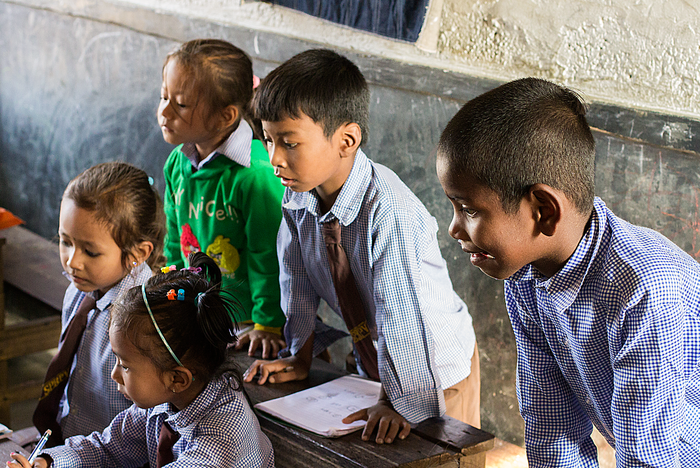
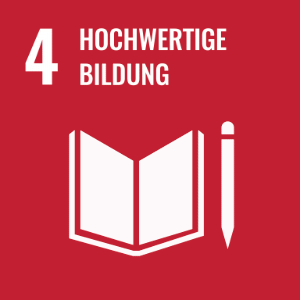
Nepal | Teach


Nepal | Teach
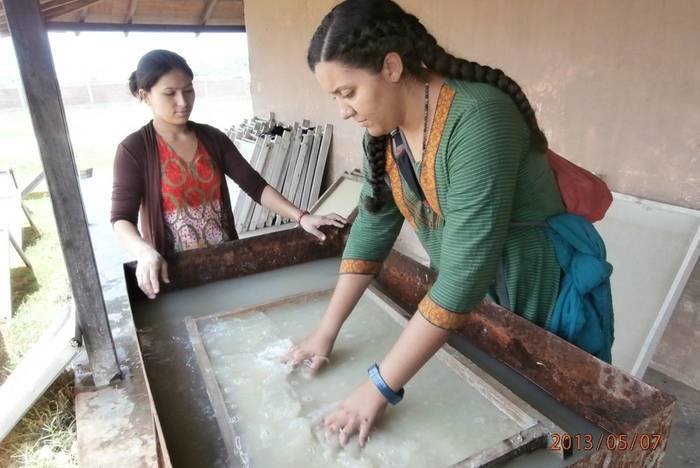
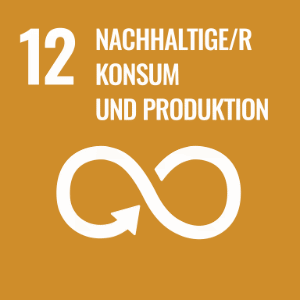
Nepal | community work
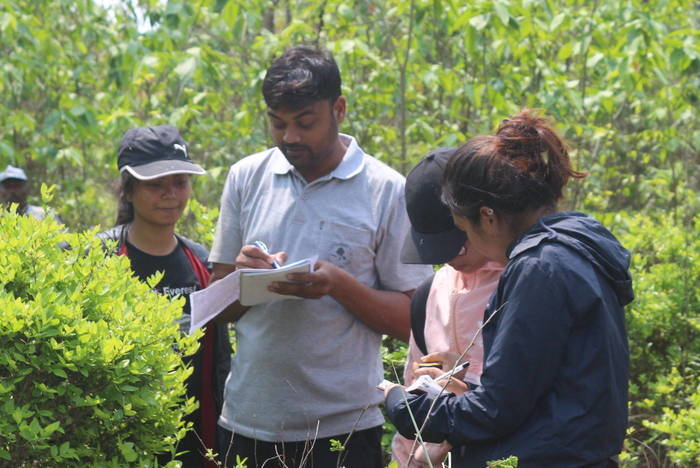
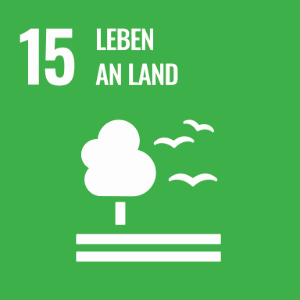
Nepal | wildlife

